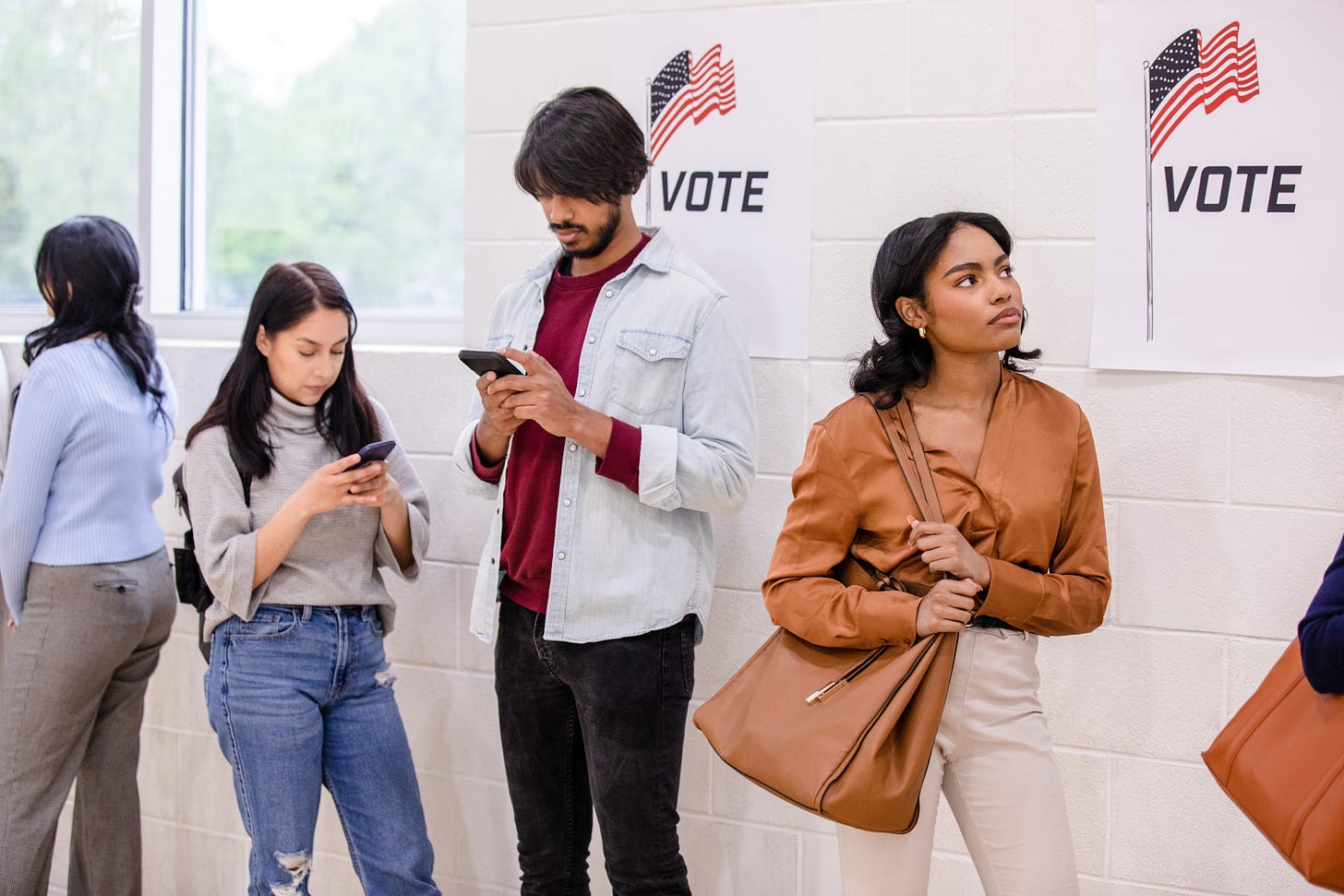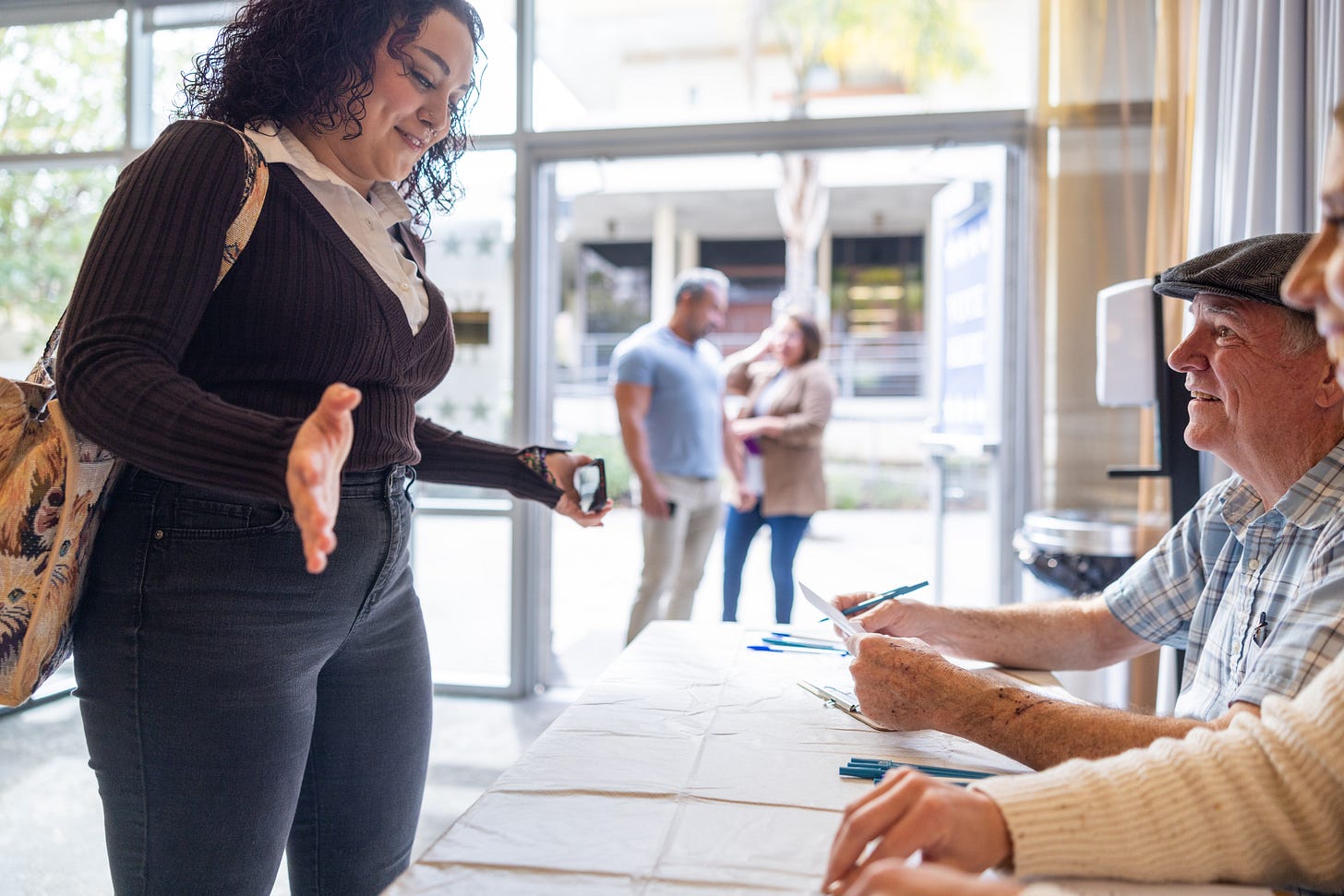IN BRIEF: In April, Indiana Governor Mike Braun signed a bill into law banning university-issued student IDs as acceptable forms of identification at the ballot box. The ban will go into effect in July.
Voting rights groups, including Women4Change Indiana and Count Us In, along with an individual voter, swiftly filed a lawsuit challenging the ban. The plaintiffs asked the court for an injunction to essentially block enforcement of the law ahead of the 2026 election cycle, citing the targeted and inherently discriminatory nature of the new measure and describing the ban as a “surgical attack on young voters.”
This new law completely changes students’ experience at polling sites and deeply impacts their access to voting in their college communities. Indeed, since Indiana’s previous voter ID law went into effect in 2005, thousands of students have been able to vote with student IDs, casting ballots on issues that directly affect their health, safety, and education. Student IDs were inspected at the polls and had to meet criteria that included having a voter’s name, photograph, and an expiration date listed on the ID.
Broadly, student IDs have long been a popular way for young voters to access the polls. At Indiana University, the largest university in the state, the local election supervisor estimated that two-thirds of students used their student ID to vote in the 2024 general election.
WHY IT MATTERS: Any attack on the right to vote should receive the same swift and unambiguous response: those in power must not withhold the fundamental right to participate in our democracy. And make no mistake: By eliminating a wildly common and easily accessible manner of voting, Indiana’s leadership is attacking young people’s right to vote.
The new law doesn’t exclude any other category of ID in the way that it treats student IDs. And it accepts certain forms of IDs as valid that fail to provide the necessary information that the old law even required. For example, military IDs are acceptable under the new law, but they do not contain an expiration date — something that student IDs do list.
And other forms of IDs are not nearly as accessible as they may seem to be. The most commonly used and accepted form of voter ID, a driver’s license, is not as easy to acquire as proponents of voter ID bills would like to think. They take time, money, and other resources to even apply for, let alone successfully obtain. Over 40% of all 18- to 24-year-olds in the United States do not own a driver’s license with their current name or address. Many of those individuals are students who rely upon student IDs being accepted at the polls in order to cast their ballots.
If Indiana’s new law is enforced as planned, the lack of accessible options for students will serve as a voting deterrent for generations to come. To meet the new ID restrictions, many college students would have to take on additional travel burdens — whether it’s traveling a long distance home to vote at their local polling places or to obtain the documents necessary to apply for an accepted form of identification. And many students won’t receive time off from classes or have the financial ability to travel.
This new law also stands to have a significant impact on Black students in Indiana. Only 55% of Black eligible adults in Indiana report having a driver’s license, compared to 81% of white eligible adults in Indiana, which means that limits on other forms of IDs are likely to disproportionately affect Black students.
American democracy at its best is a living and breathing process that does not just tolerate but relentlessly seeks the voices of everyone living within it. No group of eligible people should ever be denied their right to participate in the process that impacts their lives every single day.
LDF AT WORK: Some federal and state legislators are working to implement egregiously strict voter ID laws intended to strip whole communities of their access to the ballot box. Amid these challenges, the Legal Defense Fund (LDF) and its partners are working diligently to counter efforts to disenfranchise voters, including through pursuing legal action.
For example, in April, a federal court granted LDF’s request for a preliminary injunction temporarily blocking the U.S. Election Assistance Commission from implementing a mandate in the president’s executive order to add a requirement to show a passport or similar document proving citizenship when registering to vote via the federal form. While the case proceeds, this injunction preserves the status quo wherein would-be voters already affirm under penalty of perjury that they are U.S. citizens on the federal form.
LDF has also worked for years to oppose discriminatory photo ID laws at the state level, most notably in Texas and Alabama. Learn more about our work to overcome barriers to voting here.





